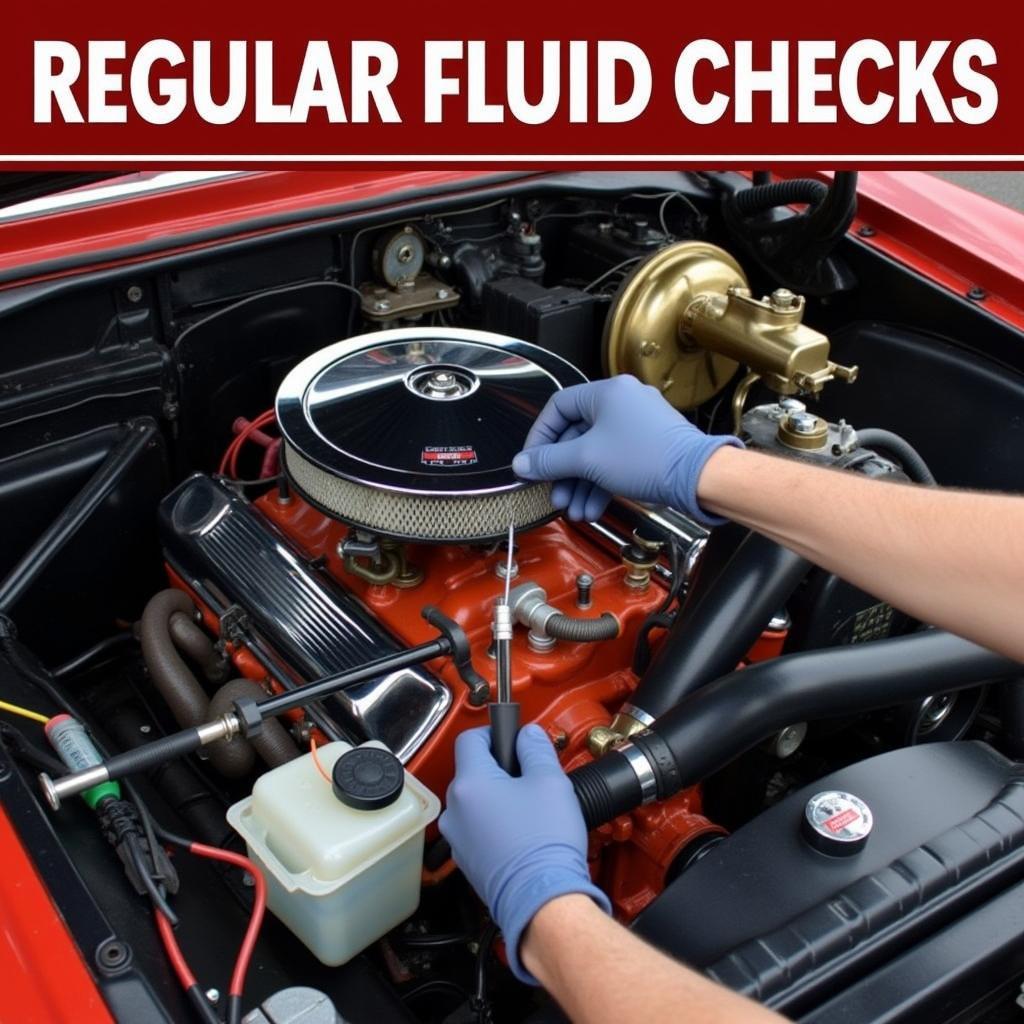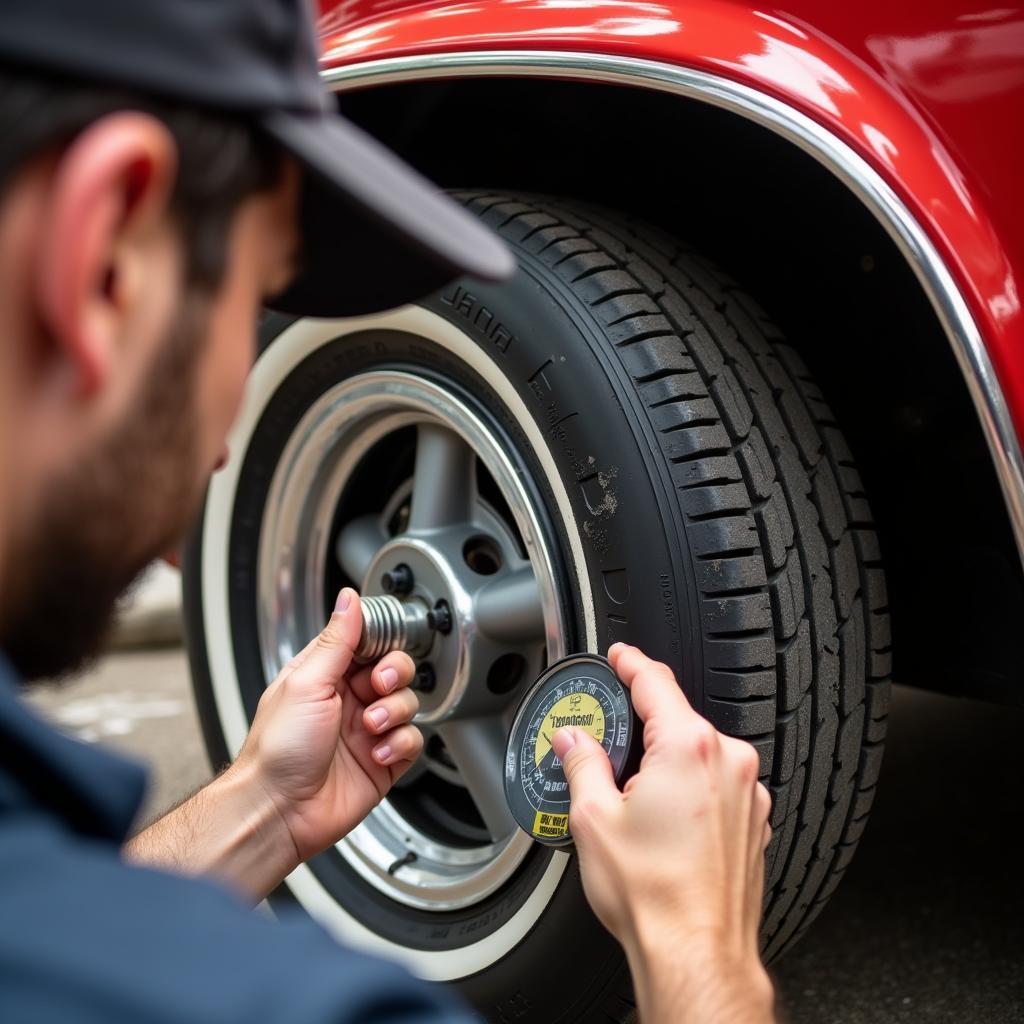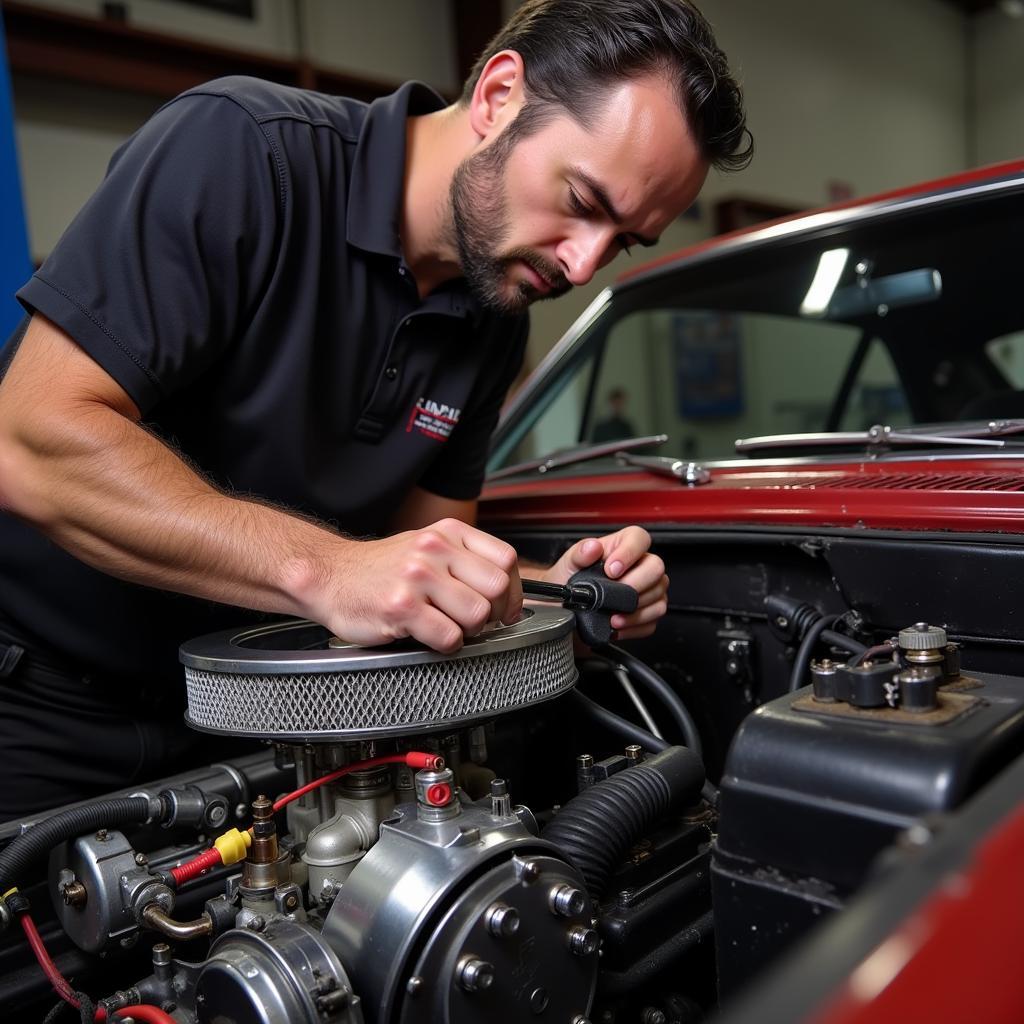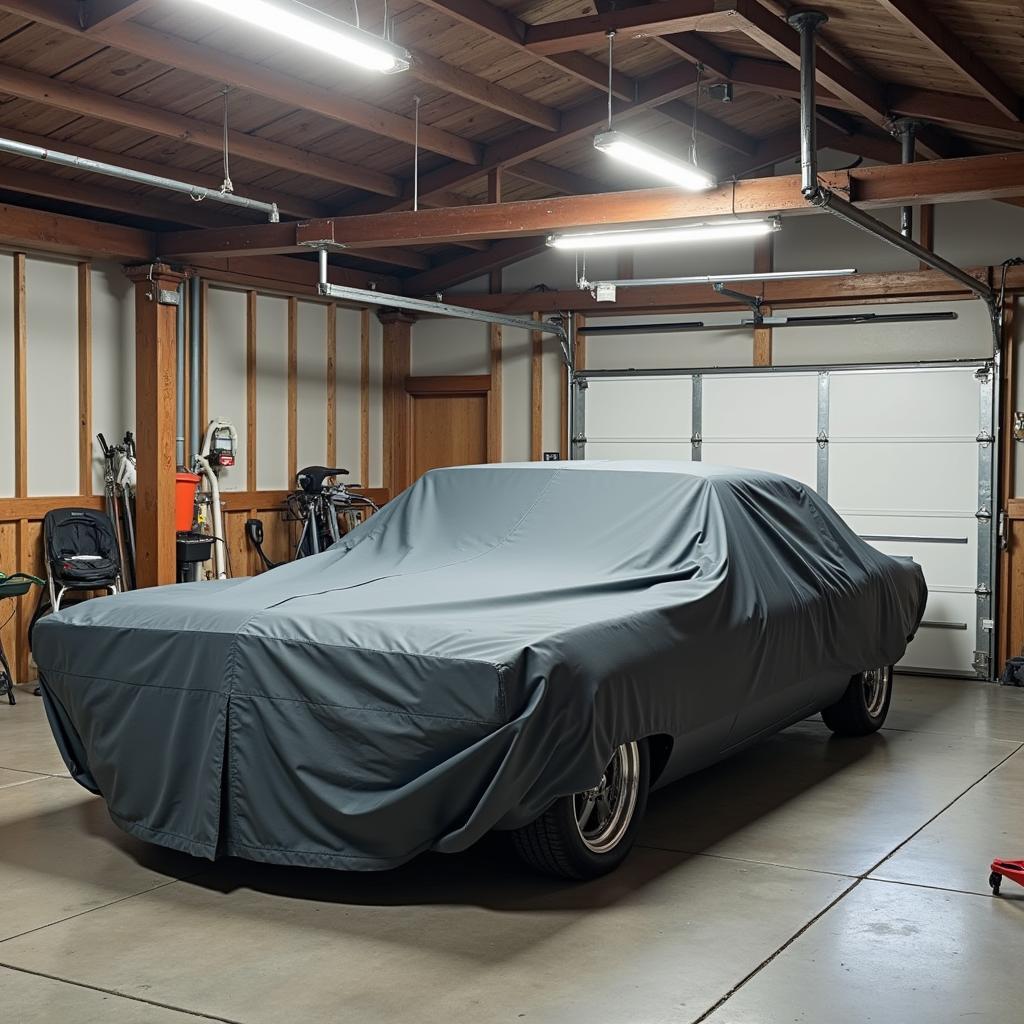Maintaining a classic car is more than just routine oil changes; it’s about preserving automotive history. It’s about keeping a piece of art running smoothly and looking its best. This guide will delve into the essential aspects of Maintenance For Classic Cars, offering practical advice and expert insights to help you keep your prized possession in top condition.
After a quick wash, your classic car might look pristine, but true maintenance goes much deeper. It requires a dedicated approach that combines preventative care with timely repairs. Learn more about caring for your collection of cars with our guide on car collection maintenance.
Why is Classic Car Maintenance Different?
Classic cars, unlike modern vehicles, often require specialized attention due to their age, unique construction, and the scarcity of original parts. Regular maintenance prevents small issues from escalating into costly repairs. This isn’t about simply keeping a car running; it’s about preserving its value, its history, and the driving experience it offers.
Essential Maintenance for Classic Cars
Regular Fluid Checks and Changes
Just like any vehicle, classic cars need regular fluid checks and changes. However, the type of fluids and the frequency of changes might differ. For instance, older engines may benefit from higher viscosity oils. Always consult your owner’s manual or a specialist for specific recommendations for your car’s make and model. What kind of fluids are we talking about? Engine oil, transmission fluid, brake fluid, coolant, and power steering fluid are all crucial for smooth operation.
 Checking Fluids in a Classic Car
Checking Fluids in a Classic Car
Electrical System Inspection and Care
Older electrical systems can be prone to issues. Corrosion, frayed wires, and failing components can lead to starting problems, flickering lights, and even fires. Regularly inspect your classic car’s wiring, connections, and battery for signs of wear or damage. Consider upgrading to modern, more reliable components where appropriate, while ensuring compatibility with the original system.
Brake System Maintenance
Maintaining the braking system is paramount for safety. Check your brake pads, rotors, and drums for wear and tear. Flush the brake fluid regularly to prevent corrosion and maintain optimal performance. If you notice any squeaking, grinding, or diminished braking power, address the issue immediately.
Looking for low-maintenance options in other areas? Explore our guide on low maintenance luxury cars 2015.
Tire Care and Maintenance
Tires degrade over time, even if they haven’t been driven on extensively. Check your classic car’s tires for signs of dry rot, cracking, or uneven wear. Maintain proper tire pressure for optimal performance and safety. Consider using tire covers to protect them from sunlight and the elements when the car is not in use.
 Inspecting Tires on a Classic Car
Inspecting Tires on a Classic Car
Preserving the Paint and Bodywork
The exterior of a classic car is often its most striking feature. Regular washing and waxing will protect the paint from the elements and maintain its shine. Address any chips or scratches promptly to prevent rust from forming. Consider using a car cover to shield the car from dust, sunlight, and rain when stored.
Keeping Your Classic Car Running Smoothly
“Regular maintenance is the key to preserving a classic car’s value and ensuring it remains a joy to drive for years to come,” says renowned classic car expert, Richard Harding, of Harding Classic Restorations. He further emphasizes the importance of preventative maintenance, “Addressing minor issues before they escalate can save you a considerable amount of money and heartache in the long run.”
Tuning Up Your Classic: What to Look For
Keeping a classic car in tip-top shape doesn’t end with the basics. Regular tune-ups are essential. This might involve adjusting the carburetor, checking the ignition timing, and ensuring the engine is running efficiently. A well-tuned engine will not only perform better but also improve fuel economy.
 Tuning a Classic Car Engine
Tuning a Classic Car Engine
Storing Your Classic Car
Proper storage is crucial for protecting your classic car when it’s not in use. Store the car in a dry, climate-controlled environment, ideally on a raised platform to prevent moisture buildup. Use a car cover to protect it from dust and other environmental factors. Disconnect the battery and add a fuel stabilizer to prevent deterioration.
If you’re looking for more insights on maintaining high-performance vehicles, check out our article on high horsepower low maintenance car.
Conclusion
Maintenance for classic cars is an ongoing process that requires dedication and attention to detail. By following the guidelines outlined in this guide, you can help ensure your classic car remains a source of pride and enjoyment for many years to come. Remember, regular maintenance isn’t just about keeping your classic car running, it’s about preserving a piece of automotive history. Contact AutoTipPro at +1 (641) 206-8880 or visit our office at 500 N St Mary’s St, San Antonio, TX 78205, United States, for any assistance with your classic car maintenance needs.
For specific maintenance schedules based on mileage, consider our resource on mile routine maintenance used car.
 Classic Car Stored in a Garage
Classic Car Stored in a Garage
FAQs
-
How often should I change the oil in my classic car? This depends on the specific make and model of your car and the type of oil used. Consult your owner’s manual or a specialist for guidance.
-
What type of coolant should I use in my classic car? Again, consult your owner’s manual. Some classic cars require specific types of coolant to avoid corrosion issues.
-
Can I use modern tires on my classic car? Yes, but consider the car’s original tire size and specifications to maintain its original handling characteristics.
-
How often should I have my classic car tuned up? A general guideline is every year or every 12,000 miles, but this can vary depending on the car’s usage and condition.
-
What is the best way to store my classic car for the winter? Store it in a dry, climate-controlled environment, with a car cover, and take steps to protect the battery and fuel system. More information about storing your vehicle collection can be found in our article on collector car maintenance.
-
Where can I find parts for my classic car? Specialized suppliers, online forums, and classic car clubs are good resources for finding parts for your classic car.
-
Do I need a special mechanic for my classic car? While not strictly necessary, a mechanic with experience in classic cars can be invaluable, especially for complex repairs or restorations.






Leave a Reply